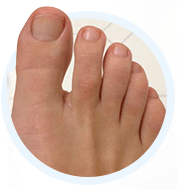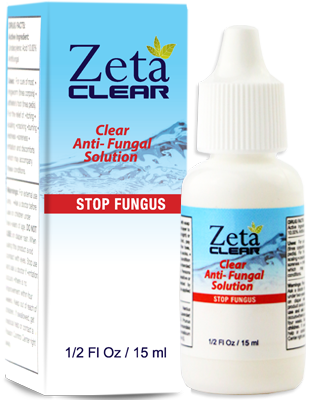Health Condition Susceptibility
Psoriasis, eczema, and rashes are among skin conditions that may be factors link 9 that could increase your likelihood of a fungal nail infection. Chronic skin irritations or athlete’s foot can contribute to your ability to fight off fungi.
One common question is whether or not certain nail fungus options are safe for those with diabetes or PVD (Peripheral Arteries Disease), which may increase your likelihood of being infected. You should consult with your medical professional prior if you have medical concerns, however, most options appear to market themselves as safe for these conditions. Any circulation related problems with your blood, illnesses, or factors that contribute to a compromised immune system are considered factors that may also increase the likelihood of nail fungus.
if you have contracted nail fungus already, please refer to our Best Practices Guide for fungus.
Age Factor & Fungus
Nail fungus is more likely as we grow older, generally over the age of 40, but it can occur at any time. Doctors estimate the possibility of nail fungus at 1 in 10 by the age of the 65 link 2 and increasing significantly afterward. One factor that may contribute to the higher prevalence of nail fungus due to aging are weaker immune systems due to decreased blood flow that hinders the ability to detect and fight off viruses/infections. Growing older also means a longer lifespan – this increases the likelihood that you will come in contact with fungi resulting in a nail infection. Aging link 30 is perhaps one of the most common underlying reason for contracting nail fungus.
To recap, the following characteristics of aging contribute to nail fungus:
Genetics, Gender, and Hygiene
Is nail fungus genetic? Some gentic factors link 3 may play a contributing role in contracting nail fungus but do not misinterpret this as a genetic predisposition. If nail fungus is common in your family history then you could potentially be more susceptible to fungal infections but there is little evidence to support this conclusion.
Daily contact with others who have nail fungus may play a contributing factor link 16 but it is unlikely. If you’re sharing nail utensils such as a clippers or a file with someone who has nail fungus you are more likely to contract it than not. Same with sharing footwear or even showering in the same vicinity may improve the likelihood you make contact with the fungi. It is not highly contagious link 25 but it is possible you are more likely at risk in these situations. If you frequent nail salons you should pay close attention to their sanitation procedures to ensure they switch out utensils between clients to help prevent putting yourself at risk.
Some research indicates that males are more likely than females to have nail fungus. Certain types of infections, such as tinea pedis prefer male carriers link 4. Slower nail regrowth which is more common amongst males, as mentioned earlier, plays a role in making the process more difficult and prolonged link 17.
Profession & Footwear
Some working conditions where you are exposed to fungi will obviously increase your likelihood of an infection. But what professions, hobbies, or environments lend themselves to this type of bacteria? These types of work conditions are outdoor activities and often machine work, especially work where your constantly exposing your nails to warm, moist environments. Warm, moist or damp environments are preferred breeding grounds for the bacteria that cause nail fungi and are common within our footwear link 16 and are areas where the nail suffers repeated trauma. Even jobs where you are frequently washing your hands may contribute. It’s not uncommon for gardeners, swimmers, and those who work in machinery to contract it.
Closed toe shoes and work boots are more likely than flip flops or sandals to encourage the growth of fungus link 5. These provide that warm, moist, dark environment previously mentioned wear fungi can thrive. If you must wear work boots and are prone to fungal infections, there are socks designed to reduce moisture caused by sweating link 6.








 Loading ...
Loading ...








